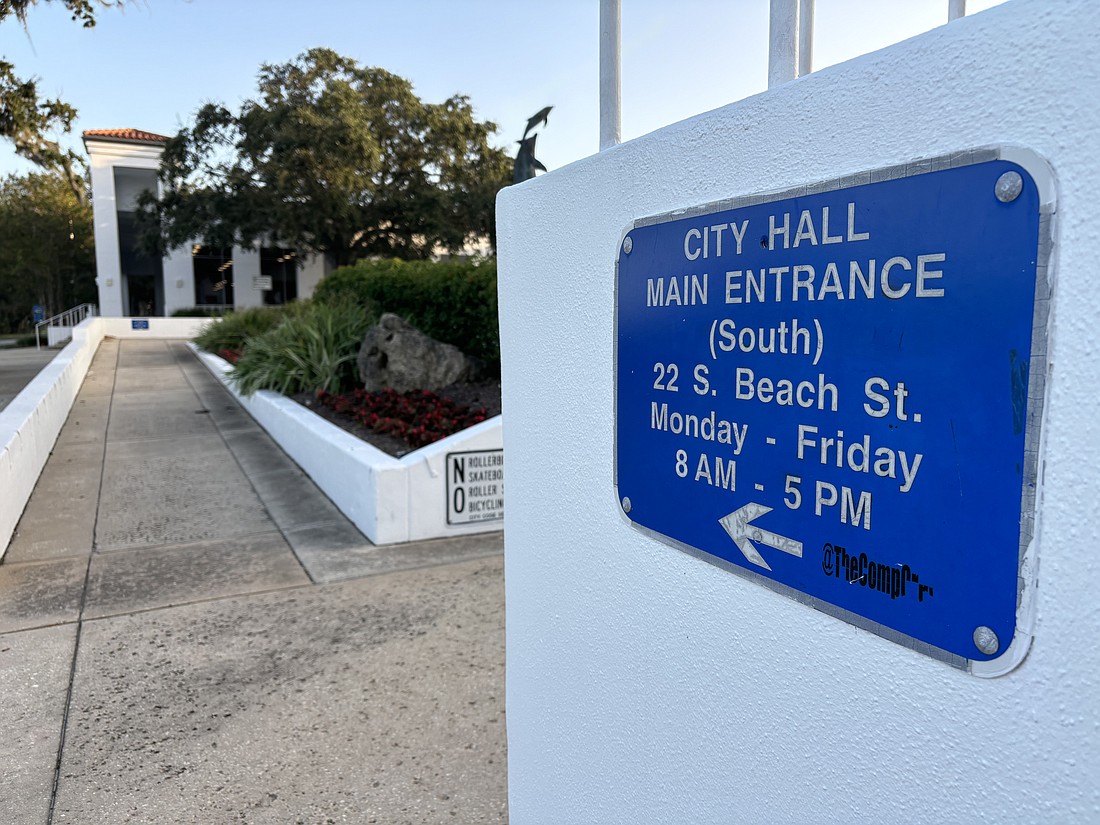- April 5, 2025
Your free article limit has been reached this month.
Subscribe now for unlimited digital access to our award-winning local news.

Though local dentists cautioned the Ormond Beach City Commission that removing fluoride from the city's water supply would have detrimental effects, commissioners on Tuesday, April 1, didn't waver from their decision against community water fluoridation.
The commission voted unanimously at its meeting to amend its code of ordinances for the removal of fluoride on a second reading, a choice that dentists said would cause increased rates of tooth decay, particularly in children. The city stopped fluoridating its water on in mid-January, based on guidance by State Surgeon General Joseph Ladapo, who cited health risks due to fluoride exposure.
Ladapo's guidance goes against that of health organizations such as the American Dental Association, Center for Disease Control and Prevention and the American Medical Association all support community water fluoridation.
Citing the ADA, pediatric dentist Dr. Sean McDonnell said a 25% overall decrease in tooth decay is a result of community water fluoridation.
In his Ormond Beach office alone, McDonnell said, families spent $291,713 in 2024 treating dental decay. Without fluoride in the city's water, he estimated families could see an increase of $72,928 per year in his office, based on the ADA statistic.
The city had been fluoridating its water supply since 1957. Removing fluoride is saving the city about $14,800 a year.
"On the macro level, this vote is about whether we want to continue to live within a health care system that profits from disease, or do we want to hold the line and start to shift to a system that profits from prevention," McDonnell said.
Amid dentists' statements, there were also citizens who urged the commission to continue keeping fluoride out of the city's water.
Ormond Beach resident Michelle Edwards said that, while fluoride has been widely accepted as a preventative measure for tooth decay, there are also studies linking it to various health risks.
"I strongly believe that the city's responsibility is to provide clean, safe water, not medicated water," Edwards said. "There are no barriers for those who wish to still use fluoride. Mass medicating the entire population without informed consent is both a medical and ethical issue."
Commissioner Lori Tolland thanked local advocates and dentists for sharing their views on fluoride. She's been fairly neutral about the topic, she said, and has seen flawed studies on both sides of the argument. Tolland shared she has received calls from constituents wanting fluoride back in the city's water supply, and personally, she chooses to use fluoride in her dental care, and her children have had good success with it regarding prevention of cavities.
"I was elected to serve the residents and represent them," Tolland said. "These residents shared their local experiences tonight compelling us to reconsider community fluoridation."
Though a Senate Bill may lead to a statewide ban on fluoride in city water supplies, Tolland proposed placing the decision in citizens' hands by putting a referendum on the 2026 ballot.
"This is a local issue for us," Tolland said. "It's not a political issue, and I would think it would make sense for us to consider putting it on the ballot."
Commissioner Harold Briley said he agreed with Tolland. His grandfather, he shared, was the city's engineer in the 1950s when Ormond began fluoridating its water.
"I do support removing the fluoride from the water at this point," Briley said. "Beauty is, we can always put it back, if down the road, we find there's an issue."
Commissioner Travis Sargent — who was the one who proposed removing fluoride from the city's water supply earlier this year — called fluoride "a medicine" and said he's not willing to put it in the city's water.
"I don't take this lightly," he said. "I appreciate all the medical professionals and all the scientific data, but at the end of the day, I am here to provide safe water to the residents of Ormond Beach."
Having grown up on city water, Commissioner Kristin Deaton, who shared that both her orthodontist and son's dentist were in the room, said both she and her son have dealt with dental issues despite community water fluoridation.
"I've had an overwhelming amount of constituents reach out and ask for fluoride to be removed," Deaton said. "Overwhelming. I had a few constituents reach out and say they would be a proponent, most in the dental industry. While I very much respect all of you being here, I am in favor of keeping the fluoride out of the water."
Sargent asked Leslie, who shared at the first reading of the amendment in March that two dentists in his family were in favor of removing fluoride from the water, if they still felt that way.
"Have they changed their mind on this, or have you had any discussions further?" Sargent asked.
Leslie didn't give a clear answer, speaking instead on not being sure if his hometown in New Jersey fluoridated its water. He said he found out it did, but that it didn't help him with cavities.
"I go twice a year, so the effectiveness of fluoride didn't work for me, for some reason," Leslie said.
Your free article limit has been reached this month.
Subscribe now for unlimited digital access to our award-winning local news.